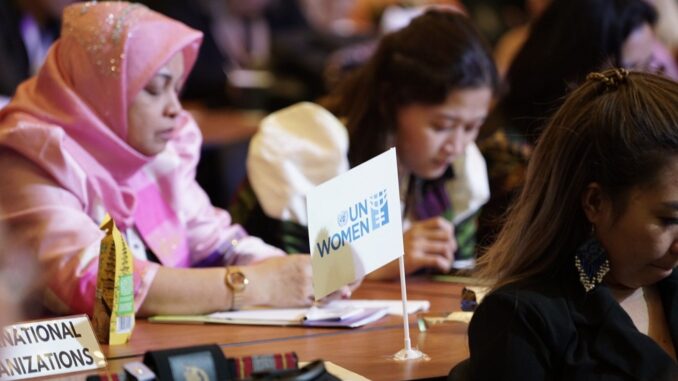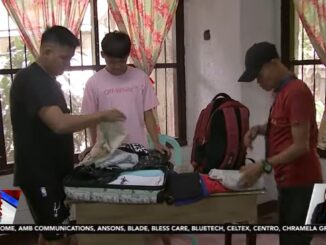
MANILA, Philippines — As the Philippines struggles to advance peace negotiations with communist groups, a high-level meeting in Manila on Tuesday, October 29, revealed that getting women involved in these efforts remains a major hurdle locally and globally.
The admission came during a parliamentary roundtable of lawmakers from different regions at the Philippine International Convention Center. The Department of Foreign Affairs (DFA) gathered current and former legislators to take stock of why, after 24 years, the United Nations’ targets for women’s participation in peace and security remain largely unfulfilled.
In a joint statement with co-organizer Sasakawa Peace Foundation, the DFA acknowledged that 24 years after UN Security Council Resolution 1325, “gaps in implementing the [women, peace, and security] agenda” persist worldwide, with disparities across nations, regions, and local sectors.
“Given the growing uncertainty and threats to peace and security that are emerging or persisting in various regions of the world, the organizers consider the recognition of these gaps as one of the most important steps in the stock-taking process that would inform the ways forward for all stakeholders,” the statement read.
Lawmakers discussed several solutions, including making the women, peace and security agenda “a cross-cutting concern for all” rather than a separate initiative. They emphasized the need for “fiscal support for WPS-related and adjacent programs, including the protection and empowerment of women and their children.”
The meeting brought together 11 women policy and lawmakers, which organizers noted was itself “an embodiment of UNSCR 1325 in action.”
The discussion is part of the three-day International Conference on Women, Peace and Security (ICWPS) hosted by the Philippine government from October 28 to 30. The gathering has drawn over 600 delegates and dozens of parliamentarians from 84 countries across six regions.
Women’s low participation in peace processes
Foreign Affairs Secretary Enrique Manalo opened the first day with a speech that highlighted how women account for just 26.6% of signatories in global peace agreements. These figures are “far too low,” he said.
He added that evidence shows when women are involved in peace processes, agreements are more likely to be implemented and sustained.
New declaration. Top of the agenda at the conference was the adoption of the Pasay Declaration at the end of the first day. This document reaffirms the commitments set in the UN Security Council resolution and other related resolutions.
The Pasay Declaration holds countries to its obligations under international law to “promote and protect the human rights of all women and girls during and after conflicts.”
It also commits countries to promote women to leadership roles in peace processes and to set measurable targets for women’s direct participation in these initiatives. The statement includes a commitment for countries to publicly track and report their progress.
Stalled peace talks. The Philippine government and the National Democratic Front of the Philippines restarted peace talks last year, with the Norwegian government serving as a third-party facilitator.
Both parties signed a joint statement in Oslo in November 2023 agreeing to a “principled and peaceful resolution of the armed conflict.” The statement indicated that both sides would work toward establishing guidelines for moving forward with formal peace negotiations.
This marked a shift from the approach of the previous Duterte administration, which had terminated peace talks in 2017 and declared the CPP-NPA as a terrorist organization.
However, both sides are at another impasse after the consecutive arrests of what NDFP says are peace consultants, but the government believes are rogue members of armed militant groups.
The government has declared the Joint Agreement on Safety and Immunity Guarantee (JASIG) void since Duterte terminated the deal when it canceled peace talks in 2017. For the NDFP, the JASIG remains in effect and should have shielded its three peace consultants from arrest.





Be the first to comment